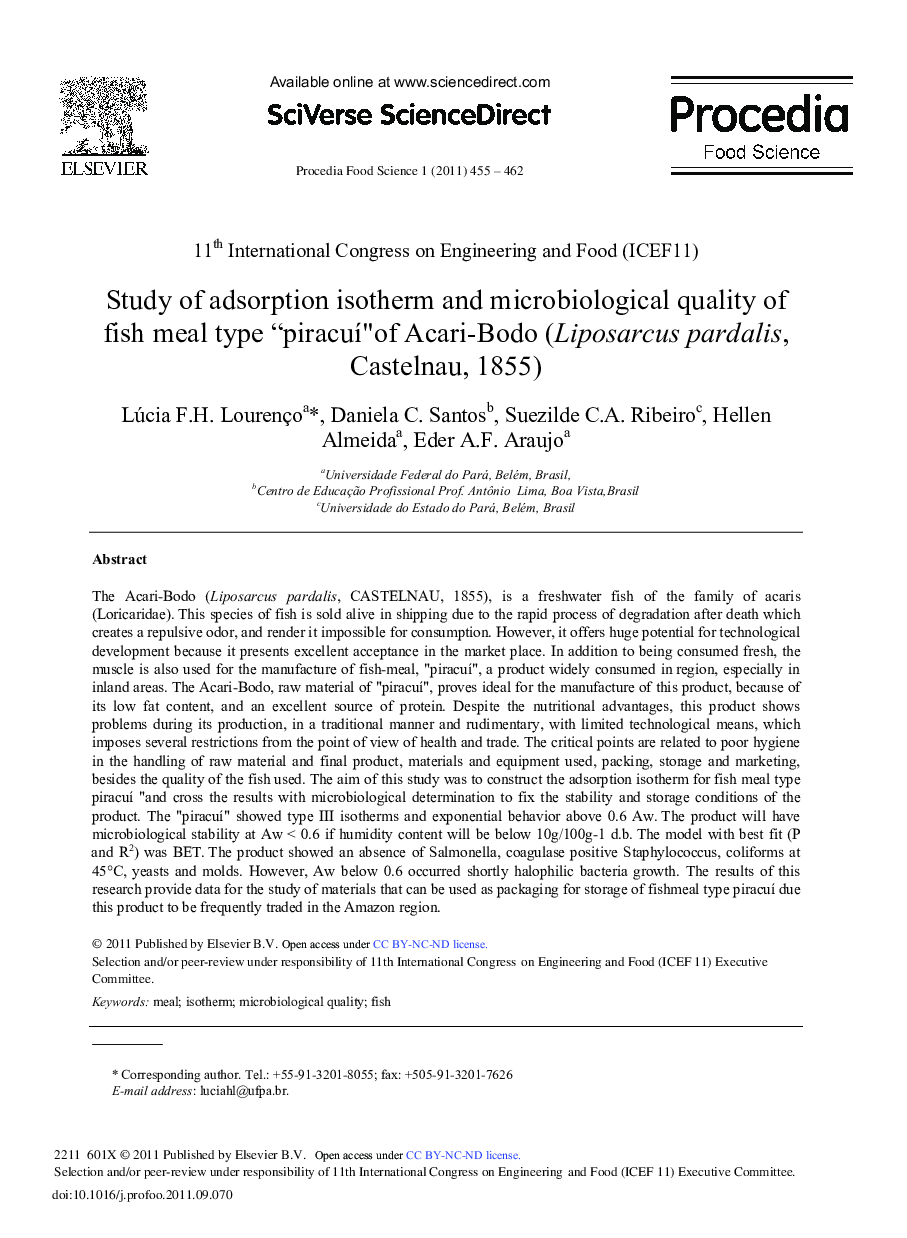| Article ID | Journal | Published Year | Pages | File Type |
|---|---|---|---|---|
| 1264978 | Procedia Food Science | 2011 | 8 Pages |
The Acari-Bodo (Liposarcus pardalis, CASTELNAU, 1855), is a freshwater fish of the family of acaris (Loricaridae). This species of fish is sold alive in shipping due to the rapid process of degradation after death which creates a repulsive odor, and render it impossible for consumption. However, it offers huge potential for technological development because it presents excellent acceptance in the market place. In addition to being consumed fresh, the muscle is also used for the manufacture of fish-meal, “piracuí”, a product widely consumed in region, especially in inland areas. The Acari-Bodo, raw material of “piracuí”, proves ideal for the manufacture of this product, because of its low fat content, and an excellent source of protein. Despite the nutritional advantages, this product shows problems during its production, in a traditional manner and rudimentary, with limited technological means, which imposes several restrictions from the point of view of health and trade. The critical points are related to poor hygiene in the handling of raw material and final product, materials and equipment used, packing, storage and marketing, besides the quality of the fish used. The aim of this study was to construct the adsorption isotherm for fish meal type piracuí “and cross the results with microbiological determination to fix the stability and storage conditions of the product. The “piracuí” showed type III isotherms and exponential behavior above 0.6 Aw. The product will have microbiological stability at Aw < 0.6 if humidity content will be below 10 g/100g-1 d.b. The model with best fit (P and R2) was BET. The product showed an absence of Salmonella, coagulase positive Staphylococcus, coliforms at 45 °C, yeasts and molds. However, Aw below 0.6 occurred shortly halophilic bacteria growth. The results of this research provide data for the study of materials that can be used as packaging for storage of fishmeal type piracuí due this product to be frequently traded in the Amazon region.
